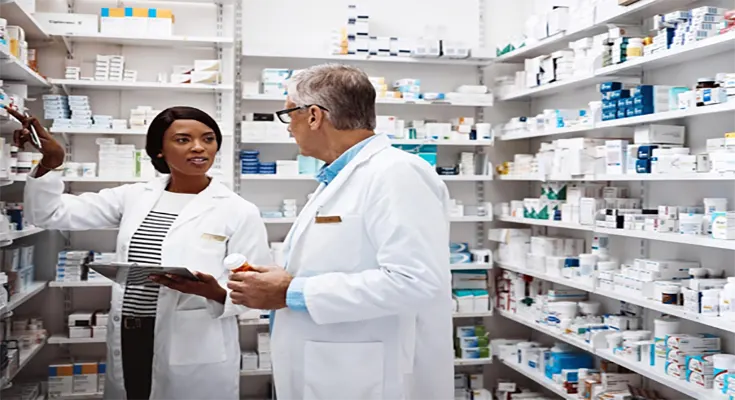The Indonesian pharmaceutical industry is a critical component of the nation’s healthcare system, providing essential medicines to the population. To ensure the safety, efficacy, and quality of pharmaceutical products, Indonesia has established a robust regulatory framework. This framework involves various governmental and professional bodies, including the Ministry of Health (Kementerian Kesehatan), the Indonesian Food and Drug Authority (Badan Pengawas Obat dan Makanan, BPOM), and the Indonesian Pharmacists Association (Persatuan Ahli Farmasi Indonesia, PAFI). This article examines the regulatory framework governing the Indonesian pharmaceutical industry, its components, challenges, and future directions. Visit pafikotasungailiat.org.
Overview of Regulatory Bodies
Ministry of Health (Kementerian Kesehatan)
The Ministry of Health oversees the overall health policy and regulation in Indonesia. It plays a vital role in setting the national health strategy, which includes policies related to the pharmaceutical industry.
- Policy Development: The Ministry develops policies to ensure the availability of essential medicines and supports the local pharmaceutical industry.
- Regulatory Oversight: It collaborates with BPOM to oversee the compliance of pharmaceutical companies with national health regulations.
Indonesian Food and Drug Authority (BPOM)
BPOM is the primary regulatory body responsible for ensuring the safety, efficacy, and quality of pharmaceutical products in Indonesia. Its functions include:
- Drug Approval: Evaluating and approving new drugs before they can be marketed.
- Quality Control: Ensuring that pharmaceutical products meet national standards through rigorous testing.
- Post-Market Surveillance: Monitoring the safety of drugs already on the market and taking action against non-compliance.
Indonesian Pharmacists Association (PAFI)
PAFI supports the pharmaceutical profession in Indonesia by contributing to the development of practice standards, providing continuing education, and advocating for pharmacists’ interests at the national level.
Drug Registration and Approval Process
Pre-Market Evaluation
Before a pharmaceutical product can be marketed in Indonesia, it must undergo a comprehensive evaluation process managed by BPOM. This process ensures that the product is safe, effective, and of high quality.
- Submission of Application: Pharmaceutical companies submit detailed applications, including clinical trial data, manufacturing processes, and quality control measures.
- Scientific Review: BPOM conducts a thorough scientific review of the application, evaluating the safety and efficacy data.
- Inspection and Testing: The agency inspects manufacturing facilities and tests product samples to ensure compliance with Good Manufacturing Practices (GMP).
Approval and Registration
Once the evaluation is complete, BPOM grants approval and issues a registration number, allowing the product to be marketed in Indonesia. This approval is contingent on the ongoing compliance with regulatory standards.
Good Manufacturing Practices (GMP)
GMP Standards
BPOM enforces Good Manufacturing Practices (GMP) to ensure that pharmaceutical products are consistently produced and controlled according to quality standards. GMP covers various aspects of production, including:
- Personnel: Ensuring that staff are qualified and adequately trained.
- Facilities: Maintaining clean and hygienic manufacturing environments.
- Equipment: Using properly maintained and calibrated equipment.
- Materials: Managing raw materials and packaging to prevent contamination.
- Production: Documenting and controlling all aspects of the manufacturing process.
Compliance and Inspections
Regular inspections and audits are conducted by BPOM to ensure compliance with GMP standards. Non-compliance can result in corrective actions, including fines, product recalls, or the suspension of manufacturing licenses.
Post-Market Surveillance
Monitoring and Reporting
BPOM conducts post-market surveillance to monitor the safety and efficacy of pharmaceutical products after they have been approved. This includes:
- Adverse Drug Reaction Reporting: Collecting and analyzing data on adverse drug reactions from healthcare professionals and consumers.
- Periodic Safety Updates: Requiring pharmaceutical companies to submit regular safety updates.
- Market Surveillance: Conducting inspections and testing products in the market to ensure ongoing compliance with quality standards.
Enforcement Actions
If safety or quality issues are identified, BPOM has the authority to take enforcement actions, such as issuing warnings, mandating product recalls, or revoking product registrations.
Regulation of Pharmaceutical Marketing
Ethical Marketing Practices
Pharmaceutical marketing in Indonesia is regulated to ensure that it is ethical and does not mislead consumers. BPOM and the Ministry of Health have established guidelines for pharmaceutical advertising and promotion, which include:
- Accurate Information: Ensuring that all promotional materials provide accurate and balanced information about the product.
- Prohibition of Misleading Claims: Prohibiting false or exaggerated claims about the efficacy or safety of a product.
- Transparency: Requiring companies to disclose any conflicts of interest or financial incentives related to the promotion of their products.
Monitoring and Enforcement
BPOM monitors pharmaceutical advertising and promotion to ensure compliance with these guidelines. Non-compliance can result in sanctions, including fines or the suspension of marketing privileges.
Challenges in the Regulatory Framework
Ensuring Compliance
Ensuring compliance with regulatory standards across the diverse and rapidly growing pharmaceutical industry is a significant challenge. Limited resources for inspections and enforcement can lead to gaps in compliance.
Counterfeit and Substandard Medications
The presence of counterfeit and substandard medications in the market remains a serious concern. Despite regulatory efforts, these products can still reach consumers, posing significant risks to public health.
Balancing Innovation and Regulation
Balancing the need for rigorous regulation with the encouragement of innovation is a complex task. Overly stringent regulations can stifle innovation, while insufficient regulation can compromise safety and efficacy.
Future Directions
Strengthening Regulatory Capacity
Enhancing the capacity of regulatory bodies like BPOM is crucial for ensuring effective regulation. This includes increasing resources for inspections, investing in advanced technologies for monitoring, and enhancing the skills of regulatory personnel.
Leveraging Technology
Leveraging technology can improve the efficiency and effectiveness of regulatory processes. This includes implementing digital systems for drug registration, using data analytics for post-market surveillance, and employing blockchain technology to secure the pharmaceutical supply chain.
International Collaboration
Collaborating with international regulatory bodies can help Indonesia adopt global best practices and standards. This can also facilitate the exchange of information and resources, improving the overall regulatory framework.
Conclusion
The regulatory framework for the pharmaceutical industry in Indonesia is designed to ensure the safety, efficacy, and quality of pharmaceutical products. While significant progress has been made, challenges remain in ensuring compliance, combating counterfeit medications, and balancing innovation with regulation. By strengthening regulatory capacity, leveraging technology, and enhancing international collaboration, Indonesia can continue to improve its pharmaceutical regulatory framework, ensuring better health outcomes for its population.



